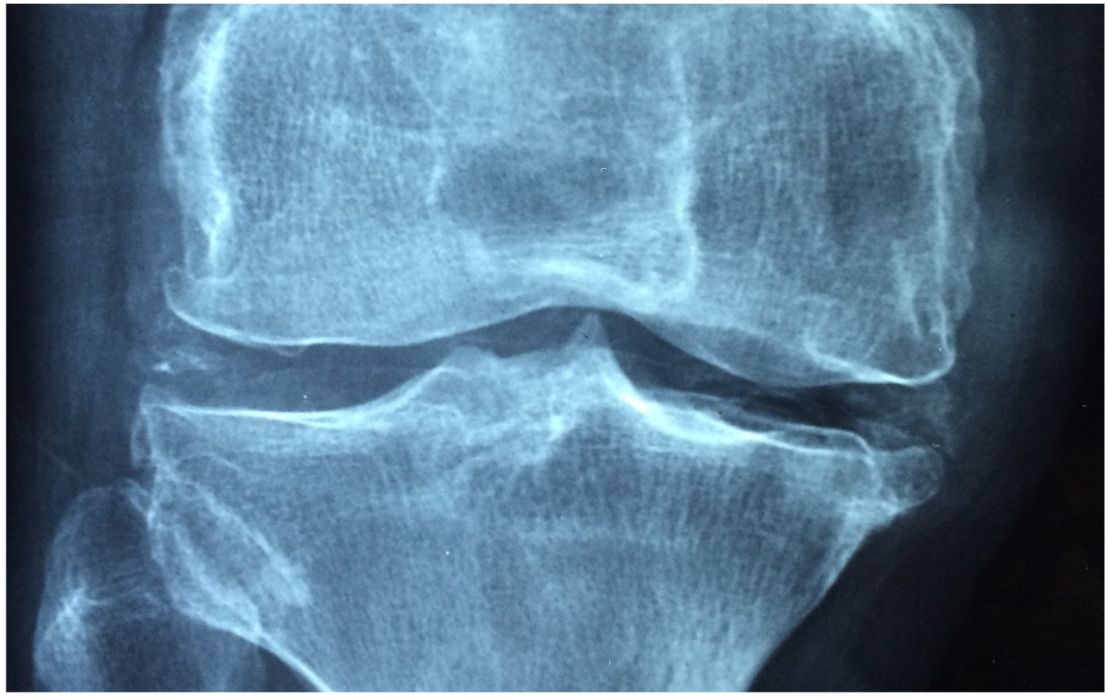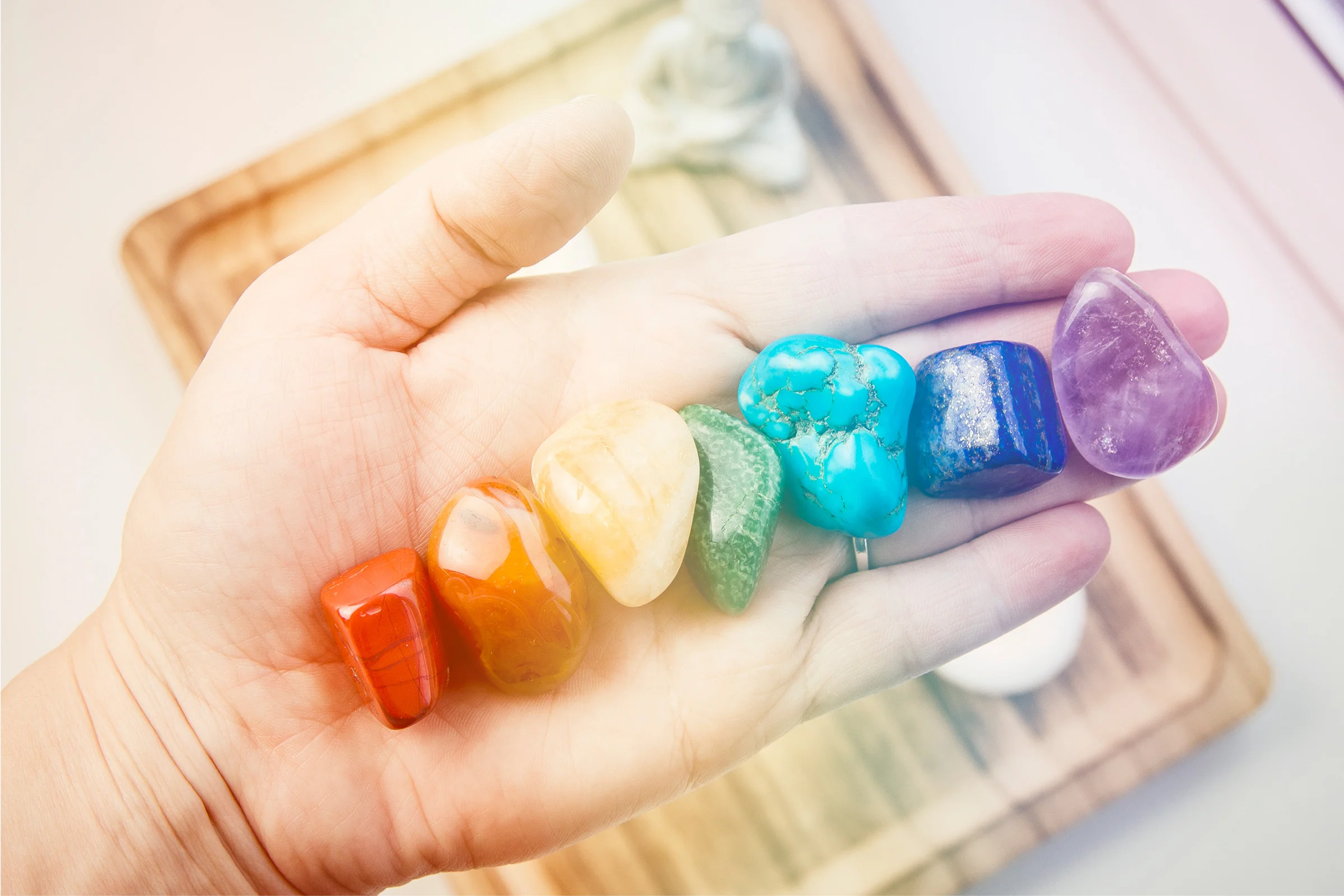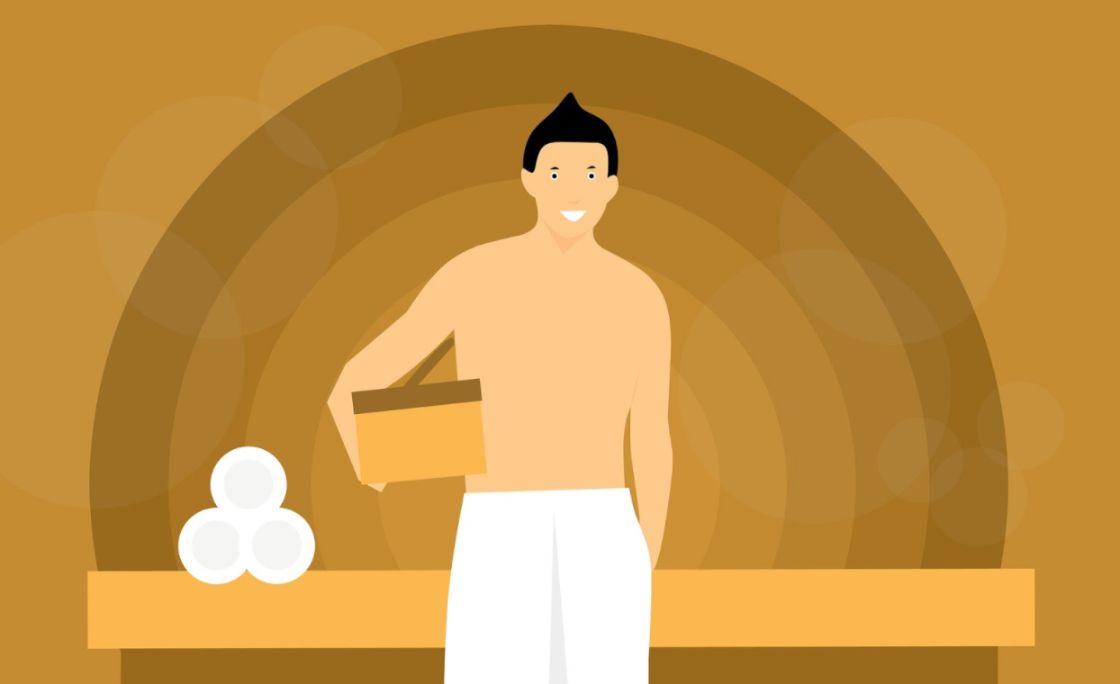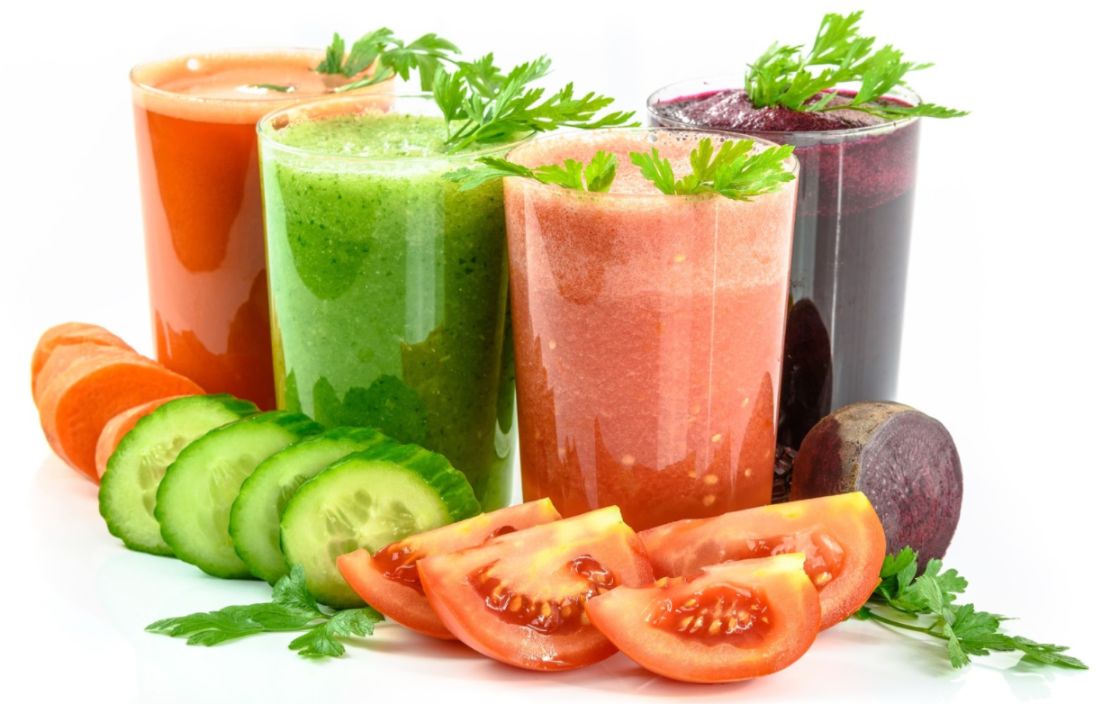Are you bored with things you always have loved to do?
Or instead of hopping out of bed, eager to face the day, you have to drag yourself out of bed and force yourself into your day?
If so, you might be suffering from depression.
Knowing how to fight depression can be pretty complicated, especially if you aren’t too eager to take medications with negative side effects or the risk of addiction.
We are about to show you 44 natural remedies for depression, but before we do, let’s understand it a little bit better.
What is Depression?
We often connect depression with sadness or grieving due to disappointment or loss.
In those cases, it is a normal part of human emotions.
Those feelings usually go away after a short period of time and typically are not associated with low self-esteem and self-loathing.
Chronic depression or clinical depression is something different altogether.
It can be related to chemical imbalances, nutritional deficiencies, medical conditions, medication side effects, or ongoing environmental factors.
Symptoms of Depression
Knowing the difference between melancholy or sadness and true depression sometimes can be best understood by looking at its symptoms.
The American Psychiatric Association (APA) says that depression symptoms can vary from mild to severe and can include:
- Feeling sad or having a depressed mood
- Loss of interest or pleasure in activities once enjoyed
- Changes in appetite — weight loss or gain unrelated to dieting
- Trouble sleeping or sleeping too much
- Loss of energy or increased fatigue
- Increase in purposeless physical activity (e.g., hand-wringing or pacing) or slowed movements and speech (actions observable by others)
- Feeling worthless or guilty
- Difficulty thinking, concentrating or making decisions
- Thoughts of death or suicide
Risk Factors for Depression
Depression is no respecter of social status or living conditions.
Though these sometimes can exacerbate the symptoms, the cause typically is found in one or more of four risk factors.
Those four factors include:
- Personality. People with a pessimistic outlook or who have low self-esteem tend to fall victim to depression.
- Genetics. The chemical imbalances and personality traits that put people at risk for depression often are passed down through genetics.
- Environmental. Exposure to violence, abuse, neglect, poverty or some other trauma on a continuing basis also can put a person at risk for depression.
- Biochemistry. Chemical imbalances in the brain are a leading cause of depression. These imbalances often are related to nutritional or environmental stressors.
Our remedies for treating depression will focus mostly on the last two factors.
Those are the two that have the potential to be altered through dietary or behavioral changes.
Potential Problems
Depression left untreated or neglected, can become destructive to relationships.
It can cause issues with employment. It makes you more susceptible to dangerous addictions.
It also can lead to suicide. The natural remedies on this list are part of an overall effort to get rid of depression, but they are not all-inclusive.
You still are advised to seek the advice of a healthcare professional for proper treatment, especially in more severe cases.
Herbal Remedies for Depression
St. John’s Wort
When it comes to herbal remedies that most closely resemble serotonin reuptake inhibitors (SSRIs), it is difficult to ignore St. John’s Wort.
Used as a treatment for a variety of nervous disorders since the times of ancient Greece, this herb is effective because it contains a compound known as hypericin.
Hypericin affects neurotransmitters in the same way as prescription medications such as Prozac but does not produce the same side effects that many prescription antidepressants have.
A typical dose is 300 milligrams three times daily. It is available through capsules or hypericin liquid extracts.
St. John’s Wort does have some adverse reactions with prescription drugs and can cause photosensitivity.
So, know what you are doing or consult a health care professional before using it.
Chamomile Tea
Anxiety and lack of sleep often are associated with and exacerbate depression.
Though drinking chamomile tea will not cure depression, it will help you relax and fall asleep.
It also will contribute to reducing the severity of some symptoms associated with fatigue.
A unique flavonoid in chamomile tea is what contributes to relaxation.
This is an excellent remedy for fighting depression.
Boil eight to twelve ounces of water and pour it over a tea bag of chamomile tea or 2 tsp of dry chamomile flowers.
Allow to steep for five minutes before straining. You can add a little milk and honey if you prefer.
When consumed 30 minutes before bedtime, this tasty tea can help you fall asleep fast and stay asleep through the night.
Green Tea
Green tea, especially the matcha (or powdered) variety also aids in relaxation.
According to clinical research, matcha green tea has flavonoids that help boost cognitive function and encourage overall brain health.
In addition, the polyphenols in green tea reduce the amount of serum corticosterone and ACTH in your body, which reduces the stress and anxiety often associated with depression.
Though green tea is helpful, it is not as highly concentrated as matcha green tea, which includes the entire leaf.
The typical formula for a proper cup of matcha green tea is pouring six to eight ounces of hot water over a ½ tsp of matcha powder and stirring it with a bamboo whisk.
Drink this a couple of times per day for better brain health and mood.
Holy Basil
Holy basil is an adaptogen (anti-stress herb) that helps your body regain function and energy during the depression.
Highly treasured in Ayurvedic medicine, it is most noted for its glycemic benefits and balancing blood sugar, but the same compounds also reduce serum cortisol levels and stress levels.
Holy basil can be consumed in tea or capsule form.
To make the tea, use a spoon to press ¼ cup of holy basil leaves against the side of a cup.
Pour hot water over the leaves, cover the cup and allow the tea to steep for five minutes before straining and drinking.
If you take capsules, the dosage should be between 1,000 mg and 2,500 mg per day.
Lemon Balm
Lemon balm, sometimes referred to as Melissa (due to its scientific name, Melissa officinalis), is a traditional remedy used for alleviating anxiety and overcoming depression.
In comparison studies with animal subjects, lemon balm performed on the same level as both of the antidepressant drugs diazepam and fluoxetine, lending some credibility to this traditional remedy.
For lemon balm tea, pour a cup of boiling water over 1 tsp of fresh lemon balm leaves.
Cover and allow the tea to steep for five minutes before straining out the leaves.
You can add a little honey or drink this mild tea straight.
Drinking this tea several times per day will do you no harm.
Ginseng
Ginseng is another adaptogenic herb.
It often is used to treat the depression-like effects of morphine withdrawal by helping to modulate the corticotrophin-releasing factor (CRF) and neuropeptide Y (NPY) systems in the hypothalamus.
Ginseng also has produced results similar to Fluoxetine in laboratory animals.
The typical ginseng dosage is 1 g to 2 g daily for three months.
Additionally, you can take 1 tsp to 2 tsp three times daily to help reduce stress.
Nutmeg
A possible biochemical cause linked to depression is when the concentration of a group of neurotransmitters, including dopamine, 5-hydroxytryptamine, and noradrenaline, is deficient.
Nutmeg helps boost the concentrations of these neurotransmitters in the brain and is therefore considered an excellent remedy for depression.
Warm up eight ounces of milk, but do not bring it to a boil. Add 1/8 tsp to ¼ tsp of nutmeg powder.
Drink this warm mixture three times a day.
Turmeric
Curcumin, the active compound found in turmeric, has been widely used in Eastern and Ayurvedic medicine for treating depression for several thousand years.
Curcumin stimulates the neuro-genesis process on a cellular level and increases the levels of dopamine, norepinephrine, and serotonin; all contributors to improved mental health.
Turmeric can be consumed in a cup of warm milk as well.
Add 1 tsp of powdered turmeric per cup and a pinch of black pepper, which aids your body in the absorption of curcumin.
It also can be made by adding 1 tbsp. of turmeric root slices to 1 ½ cups of water and boiling for 10 minutes.
Cover for three to five minutes until the mixture has cooled some and then strain out the tea.
Drink this two to three times daily.
Sage
Sage, often referred to as salvia, is another natural depression cure.
Carnosic acid and rosmarinic acid, which are found in high concentrations in sage and sage oil extracts, are powerful antioxidants that aid in enhancing cognitive function and improving mood.
These compounds tend to reduce cortisol levels in the bloodstream and encourage the production of serotonin.
Sage essential oil often is used in aromatherapies related to the treatment of depression.
It also can be consumed as a tea, often added into basil or holy basil listed above.
Lavender
Another essential oil that is highly prized for its depression treatment ability is lavender.
Lavender’s neuroprotective properties, as well as its mood stabilizing ability, are its major benefits.
It has been especially effective in treating postpartum depression in clinical trials.
Lavender can be taken in the form of a tea.
Boil 1 tsp of lavender leaves one cup of water for five minutes.
Then remove from the heat, cover until cooled and then strain. Drink two to three times a day.
Lavender essential oil should not be consumed but can be taken in via an essential oil infuser or inhaled with steam.
Garlic
Depression often is brought on by an enzyme known as monoamine oxidase (MAO).
MAO depletes levels of the neurotransmitters norepinephrine, serotonin and dopamine.
Garlic has proven to be effective at inhibiting the production of MAOs, thus preventing the depletion of these neurotransmitters that are essential to mental health.
Adding garlic to your diet isn’t all that difficult, as it tends to enhance the flavor of most dishes.
Garlic also can be taken in supplement capsule form if necessary.
The common dosage is between 600 mg and 1,200 mg daily.
Peppermint
Another great herb valued for its ability to help you relax is peppermint.
Besides being a remedy passed down from Egyptian, Greek, and Roman medicines, numerous studies have proven peppermint’s ability to help people relax.
It often is used to calm an upset stomach as well as for reducing stress, but should not be taken by individuals at risk for kidney stones or who experience GI reflux.
Peppermint tea can be prepared from tea bags or by pouring one cup of hot water over 1 tsp of peppermint leaves and allowing it to steep for five minutes.
Peppermint leaves also can be chewed to get a fast-acting effect.
Peppermint essential oil often is used in aromatherapy and hydrotherapy as well.
Passion Flower
Comparative studies indicate that passion flower has an equivalent effect on anxiety and the sleep disorders common with depression as approved anxiolytic drugs such as Oxazepam.
It is used effectively in treating insomnia and helping maintain proper insulin resistance levels, which can help reduce depression.
Passion flower tea can be made by steeping 1 tsp of the dried herb in one cup of boiling water for ten minutes.
Strain out the flowers and sip this tea two to three times daily.
Cilantro
Another herb with anti-anxiety and relaxation properties is cilantro.
Instead of Valium’s negative side effects and addictive potential, you can use cilantro instead.
Studies indicate the same effects achieved with Valium can be achieved using this potent and flavorful herb.
Pour one cup of boiling water over cilantro leaves, cover and allow it to steep for 10 minutes.
Strain out the leaves and sip this tea two to three times per day. Cilantro leaves also can be chewed for fast-acting relief.
They also make a great addition to numerous soups, salads, sauces, and dishes.
Cinnamon
Another soothing fragrance often used to soothe anxiety and reverse depression is cinnamon.
Cinnamon is a brain and cognitive function booster.
It has been known to reduce insulin resistance in diabetics and clean out cortisol from the bloodstream.
It is one of the most common pantry items and is easy to use in almost any recipe.
Add cinnamon to foods and desserts on a regular basis.
You also can drink cinnamon tea from a tea bag or by boiling a cinnamon stick in 1 1/2 cups of water for 10 minutes.
Cinnamon sprinkled over 1 tbsp. of honey can give you a quick burst of energy and brain power as well.
Thyme
Thyme is known as an herb used along with rosemary in Italian cooking, but it is also beneficial in treating depression.
This herb is packed with the mineral lithium, which is well-known in the treatment of depression.
In addition, it contains tryptophan, which is elemental in the production of serotonin.
Add thyme to your cooking. It works well in soups, salads and main course dishes.
Thyme also can be consumed as a tea just like many of the other herbs we’ve presented above.
Saffron
One of the most powerful herbs used in the treatment of depression is saffron.
Saffron has been proven in clinical studies to overcome mild to moderate depression.
It has shown to be equally effective as anti-depressants for treating depression but does not have any of the side effects or addiction issues commonly associated with those pharmaceuticals.
Adding a pinch or two of saffron to your favorite soups and dishes can make a significant difference in your mood.
Additionally, saffron can be consumed in warm milk just like nutmeg and turmeric.
Dietary Remedies for Depression
Omega-3 Fatty Acids
Two chemicals found in your brain, eicosapentaenoic acid (EPA) and docosahexaenoic acid (DHA), typically are found in low levels in individuals suffering from depression.
EPA and DHA are abundant in omega-3 fatty acids.
They are absorbed easily into your bloodstream when you consume foods that contain these medium-chain fatty acids.
Fish oil is a common place to find omega-3 fatty acids, especially in cold water fish such as salmon, halibut, cod, mackerel, and haddock.
Omega-3 fatty acids also can be found, although less abundantly, in beef, nuts, and many vegetables.
Fish oil capsule supplements can be taken at a dosage of 600 mg to 900 mg daily.
Dark Leafy Green Vegetables
Eating your greens is one of the best ways to fight depression.
Spinach, kale and Swiss chard are three of the most common dark leafy green vegetables known to most people.
The B vitamins and minerals found in these greens are what give your brain and mood a boost.
The antioxidant properties of vitamins A, C, E, and K, as well as the numerous phytochemicals, help maintain hormone balances as well.
Consume green leafy vegetables in salads daily or add them to your favorite juice recipes to give you a boost of mood-enhancing nutrition.
Bananas
Studies have shown that the serotonin found in bananas cannot penetrate the blood/brain barrier.
However, the dopamine, tryptophan and vitamin B6 found in bananas helps your body produce serotonin in the brain, a chemical that helps fight depression.
Besides these nutrients, bananas contain the minerals potassium and manganese, which help in regulating hormones, including cortisol.
Because of their sweet flavor, it isn’t hard to add bananas into your diet.
Add them to your oatmeal, yogurt or morning smoothie.
They make a great snack or dessert ingredient and are an excellent addition to just about any fruit salad.
Nuts
Several varieties of nuts are a rich source of omega-3 fatty acids.
They help your body’s nutrition by providing the critical lipids necessary for neurotransmitters to function properly.
In addition to omega-3 fatty acids, nuts such as walnuts and cashews also contain niacin, a form of vitamin B3, which is critical in overcoming depression.
Eat a handful of cashews or walnuts as a snack a couple of times a day.
Add them to fruit salads and other dishes.
You also can grind these nuts into a powder and mix them in a glass of warm milk and drink daily.
Beans
Dietary fiber, manganese, phosphorus, iron, and folate all are nutrients found in beans and lentils.
These foods often referred to as legumes, are necessary for creating the correct transmethylation reaction that leads to the production of the neurotransmitters dopamine and serotonin.
Both chemicals are essential for recovering from or reducing the symptoms of depression.
A deficiency of these chemicals is a leading indicator associated with depression.
Beans can be added to soups, salads and other main courses to get a boost of anti-depressant benefits daily.
Seeds
Paleo dieters are quite familiar with the nutritional potency of seeds for energy and vitality during weight loss.
They also work when it comes to overcoming the effects of depression.
Among the valuable nutrients of seeds, especially pumpkin seeds, are healthy fats, including omega-3s, magnesium and the amino acid tryptophan.
Magnesium is essential in helping to balance hormone levels in the body, which helps maintain better mental health.
Tryptophan is an essential element in the development of serotonin.
Rather than reaching for salty snacks such as potato chips, consider pumpkin and sunflower seeds instead.
Add flax, hemp, and chia seeds to your yogurt, cereal or smoothies to take advantage of their depression-fighting characteristics.
Avocados
Avocados are another food that can help you fight depression.
When it comes to healthy fats, avocados are high on the list.
Not only are they loaded with B, C and E vitamins, but the fats in avocados are highly effective at helping your body break down and absorb the nutrients from other foods as well.
The fat from avocados is exactly what your brain needs to function at a higher level.
It also helps maintain mood balance through the balanced production of the hormones affecting brain health, which reduces the effects of depression.
Avocados are great added to salads. They are the main ingredient in guacamole sauce.
You also can cut one in half, remove the pit, sit down and scoop the fruit directly out of its shell.
Apples
An apple a day might also keep the psychiatrist away as well as the doctor.
Loaded with vitamins B and C, as well as the minerals potassium and phosphorus, apples help prevent nerve damage and the depletion of neurotransmitter function.
The stress hormone cortisol also is reduced through the flavonoids and antioxidant potency of apples.
Apples often are used as a base in many juicing recipes.
Drinking apple juice daily can give your body a powerful boost of immunity and energy.
Including apples in your diet in salads, cereal, and yogurt is not difficult.
They also make great desserts and awesome snacks.
Oatmeal
Another way to increase serotonin levels and decrease the levels of stress hormones is by eating oatmeal.
Consuming oatmeal not only relaxes your brain and triggers feelings of calmness, but it also provides protein, vitamins, and minerals to help fuel your brain for optimum functioning.
When your brain is fueled, depression is held at bay.
A bowl of oatmeal with nuts and berries is one of the best ways to start your day, but it also can give you a boost in the afternoon when your energy and mood starts to fade.
Oatmeal can be added to yogurt and included in many healthy snacks and desserts.
Dark Chocolate
Chocolate is a go-to anti-depressant for some people, but it’s usually the milk chocolate kind.
However, the higher concentrations of cocoa in dark chocolate is where true mood enhancement is to be found.
Dark chocolate helps to increase the production of endorphins and serotonin, which reduce both anxiety and depression.
When you’re stressed or depressed, reach for dark chocolate.
Chocolates with more than seventy percent cocoa will be much more effective than milk chocolate at reducing or eliminating the symptoms of your depression.
Asparagus
Few foods are more effective at fighting off depression than asparagus.
The lack of vitamin B which helps lead to depression can be made up through the consumption of this potent vegetable.
In addition, asparagus has plenty of antioxidants to help reduce the levels of the stress hormone cortisol as well as insulin, which can cause the chemical imbalances often associated with depression.
Add asparagus into your diet several times per week.
It can be served steamed or you can eat immature asparagus spears raw with a vegetable dip or in a salad.
Eggs
Nearly every household has eggs in its refrigerator, but few people understand the power they have when it comes to battling depression.
Many of the nutrients lacking in those who have depression can be obtained through the powerful goodness of eggs.
Eggs contain a wide spectrum of B vitamins as well as vitamins A and D.
Besides those vitamins, the powerful protein and amino acid combination delivers brain fuel and the minerals calcium, potassium, and magnesium, which help to keep hormones in balance.
Sunnyside up, scrambled, poached, soft or hard boiled are also delicious ways to include eggs in your diet.
Egg salad, deviled eggs, quiche, and soufflé are other great ways.
Barley Tea
The production of the amino acid tryptophan and its consequential production of the neurotransmitter serotonin is an essential element involved in combating the effects of depression.
Barley tea is a great place to obtain the necessary compounds involved in this critical mood-boosting and cognitive health process.
To make barley tea, bring a pot of eight cups of water to a boil.
Add 1/3 cup of roasted barley to the boiling water and turn the heat down to a simmer.
Simmer the barley for 20 minutes. Remove the pot from the heat, cover and allow the tea to cool for five minutes before straining it and drinking it.
Coconut
When considering healthy fats that can help ward off depression, you cannot ignore coconut and coconut oil.
Besides providing the fats your brain uses for fuel, coconuts are loaded with vitamins and minerals that boost immunity and balance hormone production.
Their electrolytes are great when it comes to giving you a boost of energy as well.
Include raw coconut flesh in your diet through salads, cereals, snacks, and desserts.
Coconut milk is a flavorful addition to your morning or afternoon smoothie as well.
Coconut oil is also one of the best oils you can use to replace vegetable oils in cooking.
If those weren’t enough uses, coconut oil is one of the best base oils to use along with other essential oils for topical use.
Berries
Antioxidants are another major contributor to the elimination of free radicals, which through oxidative stress deplete the compounds and chemicals necessary for maintaining a balanced mood.
Some of the most powerful antioxidants are found in berries.
What’s more, berries tend to have a low score on the glycemic index, which means they help maintain blood sugar levels, also critical in the fight against depression.
Dark berries, such as blueberries, raspberries, strawberries, and blackberries, have the highest concentration of beneficial antioxidants and are great additions to smoothies, cereal, yogurt, fruit salads, and desserts.
Behavioral Remedies for Depression
Exercise
When you exercise, your brain releases endorphins.
Endorphins are hormones of the peptide class.
Peptide hormones activate your body’s opiate receptors and the result is an analgesic effect that improves mood and eliminates stress.
Just 30 minutes of daily exercise can make a significant difference in defeating the symptoms of depression.
Start going to the gym or join an exercise class of some sort to keep yourself committed.
If you can’t fit those expenses into your budget, you can spend 30 minutes walking three to four times a week.
Cycling, swimming and active sports all are pleasurable ways to fit exercise into your wellness routine.
Set Goals
Setting goals is often one of the best ways to overcome lack of concentration or lethargy.
By checking off items from a to-do list daily, you give yourself a boost of self-esteem and maybe even a small endorphin release as well.
Begin by writing down manageable, daily goals for the following day.
Don’t do this in the morning, because you might not set any goals or spend all day writing down the goals instead of accomplishing the tasks.
Don’t overwhelm yourself, make them simple and easy and build from the momentum.
Sleep
Not getting a sufficient amount of sleep is a major factor in exacerbating depression.
Cytokines are released by your body during sleep.
These proteins perform cellular repair and help to boost the necessary chemical reactions for producing mood-boosting neurotransmitters.
Because anxiety and stress often lead to insomnia, which adds to the downward spiral of depression, discovering ways to help get a restful night of sleep can be a big help in the treatment of depression.
Make use of the numerous herbs and spices we listed above to help you sleep better.
Start a habit of winding down with a bath, a relaxing cup of your favorite herbal tea and maybe reading a book before falling asleep.
Work at eliminating any stimulus from television in the last 30 minutes before falling asleep and get into a regular schedule of sleep.
Consider using devices that control lighting levels to gradually put you to sleep and awaken you at the proper time.
Sunlight
The relationship between vitamin D and depression treatment has been proven several times over.
Vitamin D balances your brain hormones and can contribute greatly to reducing depression or eliminating it entirely. Sunshine is what makes your body produce vitamin D.
Try getting at least 30 minutes of sunshine every day.
You can combine those 30 minutes with your other daily activities or get that time as part of your exercise routine.
One word of caution, be mindful of UV radiation and protect yourself from its damaging effects with long sleeves and a hat.
Hydrotherapy
Take a cold shower.
Though that statement might not thrill you, studies have shown that a cold shower enhances serum levels of beta-endorphin and noradrenaline and activates the sympathetic nervous system.
These functions help defeat depression.
A cold shower is not the only type of hydrotherapy which helps you get a grip on depression.
Even warm water at various temperatures and pressure also can enhance nociceptors in your nervous system and bring relief.
Ai Chi aquatic exercise has been proven to help eliminate depression.
Water aerobics, swimming, and other water exercises can be added into your wellness routine.
Massage
Besides feeling good and releasing endorphins, massage helps open pathways in the circulatory and nervous systems.
Those pathways are essential for the communication of neurotransmitters that enhance your brain function and, consequently, your mood.
The use of essential oils often accompanies massage, which adds an additional element to overcoming depression.
Regularly visit a certified massage therapist (CMT) or learn couples massage with your partner and make use of that skill to trade healing massage on a weekly basis or even more often.
Aromatherapy
Essential oils are extracted from all types of plants.
Those essential oils can come from spices, herbs, flowers, woods and many other sources.
The depression-healing attributes of many of the herbs and spices mentioned above also can be obtained through essential oils as well.
Inhaling essential oils through aromatherapy allows induces the production of depression-fighting chemicals in your body.
Essential oils typically are placed in a diffuser, in bathwater, or inhaled with steam.
You might also place a few drops of an essential oil on a cloth that you carry with you.
You also could place a few drops in your palms, rub them together and hold them up to your face.
They can be added to coconut or another base oil for use in massage and topical applications as well.
Cognitive Behavioral Therapy
Cognitive Behavioral Therapy (CBT) is a short-term therapy that focuses on altering behaviors that add to your pessimistic outlook or feelings of inadequacy.
Besides being able to unload weighty feelings of self-doubt, your therapist will provide you with coping skills and behavioral changes that will help you overcome depression behaviors.
Contact a licensed therapist who specializes in CBT, or even a therapy group that uses CBT as its method of refocusing the behavioral issues associated with depression.
Acupuncture
Similar to massage, acupuncture helps open nervous and circulatory system pathways, which allows the free flow of chemicals and nutrients necessary for fighting depression.
Using needles in specific points that control groups of nerves, endorphins are released that can help you relax and feel more positive about yourself.
Contact a reputable, certified acupuncturist for a consultation and a more in-depth explanation of the benefits of acupuncture for depression.
Avoid Alcohol and Tobacco
A common cause of depression is folic acid and vitamin B12 deficiencies.
Whereas many herbs, spices, and foods can help replenish these nutrients, the depletion of them often is linked to alcohol and tobacco consumption.
Additionally, persons suffering from depression tend to more easily fall victim to these addictive behaviors as well.
Reduce or eliminate alcohol and/or tobacco use while you are battling depression and limit their use even when you are healthy.
Coffee and energy drinks with caffeine can give you a temporary boost of energy and a better mood, but the crash that often follows can be worse than the original state of depression.
In addition to the crash, too much caffeine, which stimulates the production of adrenalin, tends to destroy your adrenal system.
That is where many of the chemicals that affect serotonin production are produced.
In the long run, caffeine works to worsen depression rather than eliminate it.
Reduce caffeine intake to less than 400 mg per day.
That’s four cups of brewed coffee, 10 cans of cola or two “energy shot” drinks, according to the Mayo Clinic.
For severe depression consider cutting that number in half and maintaining lower levels of caffeine intake until your symptoms are greatly decreased.
Do Not Isolate
One of the worst traps you can fall into when you are depressed is social isolation.
Social isolation tends to keep you focused on self-loathing and ruminating or fixating on the problems associated with your condition.
That only leads to worsening feelings of depression.
Isolation tends to keep you from exercising, getting out in the sun and seeking help as well.
Even if it takes a great deal of effort, interact with family and friends several times per week.
Include them in exercise activities or getting out into the sun.
Joining classes or groups, which forces you to interact with others, can have a major impact on helping you to overcome depression.
Conclusion
Depression is more than just feelings of sadness, melancholy or grieving.
It is a medical condition with severe consequences if left untreated.
Knowing how to cure depression is an ongoing process that includes dietary and lifestyle changes to reap the best benefits.
Treating the environmental and nutritional contributors to depression can help you avoid some of the negative side effects of pharmaceutical treatments for depression.
Since nutritional deficiencies often contribute to depression and its intensity, making certain that your body has all the nutrients it needs is a major factor in getting over depression.
Besides nutritional changes, exercise and overcoming environmental or behavioral challenges can also contribute significantly to overcoming this debilitating condition.
If you are searching for how to treat depression with minimal or no medication, consider several of the suggested natural remedies in our list above.
Present them to a healthcare provider who can help guide in making them more effective.
If you have questions, suggestions or success stories you would like to share, please include them in the section below.








